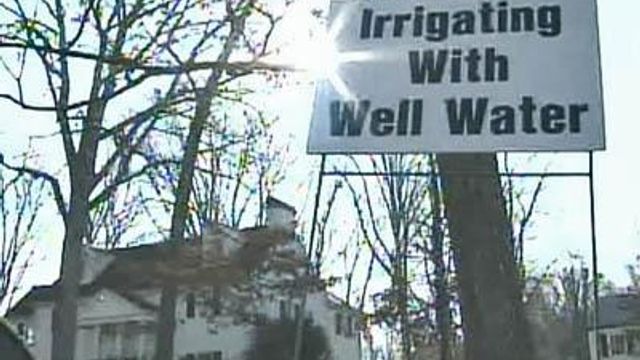Wake to Examine Impact of Wells on Falls Lake
Wake County plans to study the effects of private wells on the area water supply.
Posted — UpdatedAbout 30,000 county residents use wells, officials said. Some wells are individually owned, while others are shared by several property owners.
In the past year, 120 people applied to dig their own wells on their property, which officials said was double the average in previous years.
"We have a culture in this state, in Raleigh, that says, 'Hey, we've got green grass, and want to keep it green,'" said Greg Bright, a groundwater specialist with Wake County's Environmental Services Department.
Bright said the study, which will be done early next year, will look at whether well use is depleting Falls Lake, which is Raleigh's primary reservoir.
"There is some thought that, maybe if there's a lot of groundwater being pulled out of the ground, does it have some impact on the amount of water that goes into Falls (Lake) basin," he said.
Raleigh has banned outdoor watering and personal washing of cars as the supply of drinking water in the lake continues to dry up. The lake has about 95 days of water left.
But those restrictions don't apply to Valerie Dudley, who has a private well and was washing her car Thursday.
"We can water when we have to," Dudley said. "Since the well water doesn't have the regulations, we can pretty much wash our car as freely as we want, which is pretty nice. We don't have to look over our shoulder every time we want to do something."
Bright said the study also will examine the effect of community wells on smaller ones in the watershed.
"As we plan growth and we put more community wells and private well in, we don't (want) someone's private well go dry because we've placed a community well nearby," he said.
Privacy rights limit regulations that could be imposed on well users, but officials said they could seek state legislation on private wells to conserve water.
"We don't want to make a knee-jerk reaction. We would need some firm data before we looked at anything like that," Bright said.
• Credits
Copyright 2024 by Capitol Broadcasting Company. All rights reserved. This material may not be published, broadcast, rewritten or redistributed.





